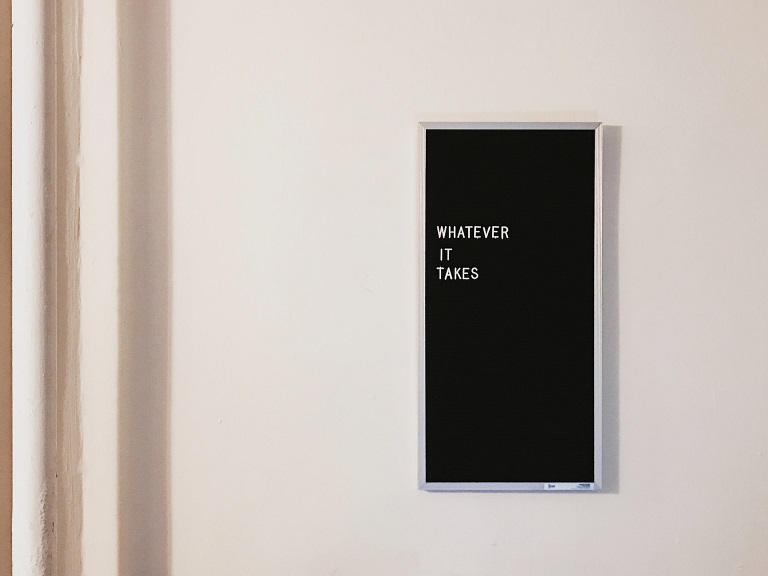What Is Residential Drug Rehab?
Inpatient treatment, also described as residential treatment, provides the highest level of rehab services for patients diagnosed with alcohol or other drug addiction. Generally, inpatient drug rehab programs include medical detox and incorporated mental health services. With your authorization, rehab staff might also talk with your family members and seek advice from specialists you might currently be dealing with to resolve your requirements and challenges. Due to the fact that addiction is a disease that impacts your body, mind and spirit, a multidisciplinary team is united to offer you with a holistic recovery strategy. Your certified employee for residential treatment might include:
- Physicians
- Nurses
- Psychiatrists
- Psychologists
- Accredited marriage and family therapists
- Accredited addiction counselors
- Nutritionists
- Health and fitness specialists
- Continuing care planners
- Monetary supporters
- Medical case managers
Prepared to take the next action?
Call (866) 503-4950 today and our group of recovery specialists will identify the most reliable drug abuse treatment programs and services to help you recover your life from addiction.

The Benefits of Residential Drug Rehab
Residential rehab, and numerous types of inpatient rehab, provide certain advantages that other forms of treatments might not constantly provide. A few of these benefits consist of:
- The capability to detox in a safe and protected environment offering 24/7 care and assistance.
- The capability to resolve drug abuse issues, codependency, co-occurring disorders, and trauma in a safe and secure environment.
- Different therapies.
- A tight-knit community with whom to process all phases of substance abuse recovery.
In spite of the big amount of benefits that residential rehab offers, all types of substance abuse treatment prove beneficial for those wanting to recuperate from drug abuse concerns. For more information about different inpatient and residential treatment programs near you in Gap, Pennsylvania, call: (866) 503-4950
Inpatient Vs. Outpatient Rehab in Gap Pennsylvania
Inpatient And Outpatient Addiction Treatment
Alcohol and drug treatment programs generally fall under 1 of 2 classifications– inpatient or outpatient rehab. While similarly concentrated on rehabilitation, each type has special attributes and benefits to offer. Inpatient rehabs are intensive, residential treatment programs designed to treat serious addictions. Outpatient rehabilitations are part-time programs, allowing the recuperating user to keep going to work or school throughout the day. It’s important that both the specific with a substance use disorder (SUD) and their loved ones comprehend the differences before selecting an inpatient or outpatient treatment program. Exploring all alternatives prior to making a decision can put you or a loved one on the road to recovery long-lasting sobriety.Inpatient Rehab And Treatment
Inpatient recovery programs, likewise referred to as residential treatment, need patients to check themselves into a controlled environment to conquer their addictions. Clients stay at a clinic with 24-hour medical and emotional support.Preparing For Inpatient Rehab in Gap
It is essential to effectively prepare for rehab. There’s no set quantity of time needed to prepare for treatment. It is essential to set an entry date for rehab and to have affairs settled prior to that date. Some of the important things to look after prior to going into rehab consist of:- Speaking to your company
- Finding living plans for kids or other family members
- Preparation how to get to and from the recovery center
- Finding out what personal items are enabled
Family Assistance And Contact In Inpatient Rehab
Effective inpatient centers know family participation is essential to recovery. Member of the family can call loved ones in residential treatment to supply emotional support and motivation. When it comes to how and how typically residents can interact with their loved ones, each inpatient center’s policy is different. Some rehab centers likewise provide counseling for the family of the person in treatment.Every Day Life During Inpatient Rehab in Gap, PA
Throughout inpatient treatment, homeowners have the ability to entirely concentrate on recovering and sober without the distractions of daily life. A typical day in residential treatment is carefully scheduled and accounted for. Psychologists, counselors, and psychiatrists meet with clients individually and in group settings to guide inpatient recovery. A typical residential program runs anywhere from 28 days to 6 months. The initial step in inpatient treatment is medically assisted detox. Physicians and addiction specialists keep an eye on clients’ vital signs while the drugs leave the system. Drug cravings are common throughout detox and can be difficult to overcome, typically causing relapse. Continuous medical care supplied during inpatient treatment helps defend against regression. Clinicians can offer necessary medication and medical proficiency to decrease cravings and withdrawals. The brain reacts in a different way to various addicting substances in time and a course of regular use. Withdrawal symptoms aren’t enjoyable for any drug, but some drugs should never be quit without medical supervision. Some withdrawals can be deadly. Lethal withdrawals are connected to drugs like synthetic Opiates, Benzodiazepines, alcohol, and Heroin. Throughout inpatient rehab, clients have access to 24-hour medical attention. This attention can indicate the distinction between regression and recovery.Outpatient Rehab And Drug Abuse Treatment
Outpatient drug rehab is less limiting than inpatient programs. Outpatient recovery programs generally require 10 to 12 hours a week invested visiting a regional treatment center. These sessions concentrate on drug abuse education, specific and group therapy, and mentor addicted people how to cope without their drug. Outpatient drug rehab can be a good standalone option for somebody with a mild addiction, or it can be part of a long-lasting treatment program. Outpatient drug rehab can last 3 to 6 months– something similar to inpatient treatment– or over a year.Outpatient Detox Programs in Gap
Clients with mild-to-moderate drug withdrawal symptoms might discover outpatient detoxification a fitting option to residential detox. Outpatient detox is safe, effective, and takes less time to complete than inpatient detox; the typical outpatient detox is 6.5 days. Patients need to check out a health center or other treatment facility for physical and mental check-ups throughout outpatient detox. Clinicians or doctors might administer medications on-site to soothe withdrawal signs like stress and anxiety, anxiety, and increased heart rate.How Does Detox Work?
Detox is the primary step in helping your brain and body heal from drug abuse. The detox process begins with assessments by medical physicians and nurses to determine which, if any, medical interventions are required. Detox is mostly a time to flush the chemicals from your body, which can be an unpleasant experience without the best treatment to assist relieve discomfort and/or drug yearnings. Medical staff will deal with you to examine your level of pain and provide you with medications, if needed, to attend to any discomfort or cravings. During the detox process, you will be medically kept track of 24/7 up until medical staff determine you are steady enough to participate in rehab programming and activities.Social Assistance in Gap During Outpatient Rehab
Outpatient drug rehab enables those in recovery to remain in your home during treatment. Those going through outpatient drug rehab can continue working and remain near family and friends. Outpatient treatment centers typically conduct meetings at night or in the early morning, helping those in the program preserve their normal schedules. Twelve-step groups like Alcoholics Anonymous (AA) and Narcotics Anonymous (NA) may be used as part of outpatient treatment. Research studies show that taking part in recovery groups like AA and NA helps recovering addicts stay sober. Many people with a substance use disorder (SUD) also turn to outpatient treatment after finishing an inpatient program as part of their continued recovery.Inpatient treatment programs generally cost more than outpatient drug rehab. The on-hand healthcare and psychiatric therapy offered to residential rehab clients increases treatment costs. The cost distinction must not encourage or prevent somebody from selecting the very best treatment route for them.
How Much Does Residential Drug Rehab in Gap Cost?
The cost of inpatient rehab programs depends upon the treatment center picked, the level of medical care suggested, and the length of time in treatment. The amount you pay will likewise depend on whether you have the ability to access insurance benefits to help cover the cost or you’re paying out-of-pocket. Many treatment centers are in-network with a lot of insurance providers, and the majority of patients use their health insurance benefits to help cover treatment expenses. Insurance policies and benefits vary significantly, so it’s important to contact your service provider about coverage specifics in your case. Some centers offer client monetary support funds, on a limited basis, to assist balance out the cost of addiction treatment for qualifying patients – please call (866) 503-4950 today to ensure you certify.Residential Drug Rehab Gap Pennsylvania?
Your first step is to call our friendly support team on (866) 503-4950 for a confidential phone assessment. You will talk with a recovery specialist who will identify whether drug or alcohol treatment is required and, if it is, will advise the appropriate level of care and deal with you to collaborate insurance benefits. If alcohol or drug addiction is not clearly showed or if you’re not all set to commit to an inpatient stay, you can benefit from other services such as mental health sessions, coaching, view a webinar, or listen to a podcast to get more info or to get motivation.Whatever The Decision, Recovery Is Around The Corner
No matter which treatment alternative in Gap you pick for you or a loved one, rehab can change your life. Addiction is a chronic disease, and recovery is a lifelong process. Physician, mental health counselors, and neighborhood groups like AA can teach the essential abilities to prevent regression. Take the primary step towards recovery and call a treatment company today.Prepared to take the next step?
Call (866) 503-4950 today and our team of recovery specialists will figure out the most efficient drug abuse treatment programs and services to help you recover your life from addiction.

